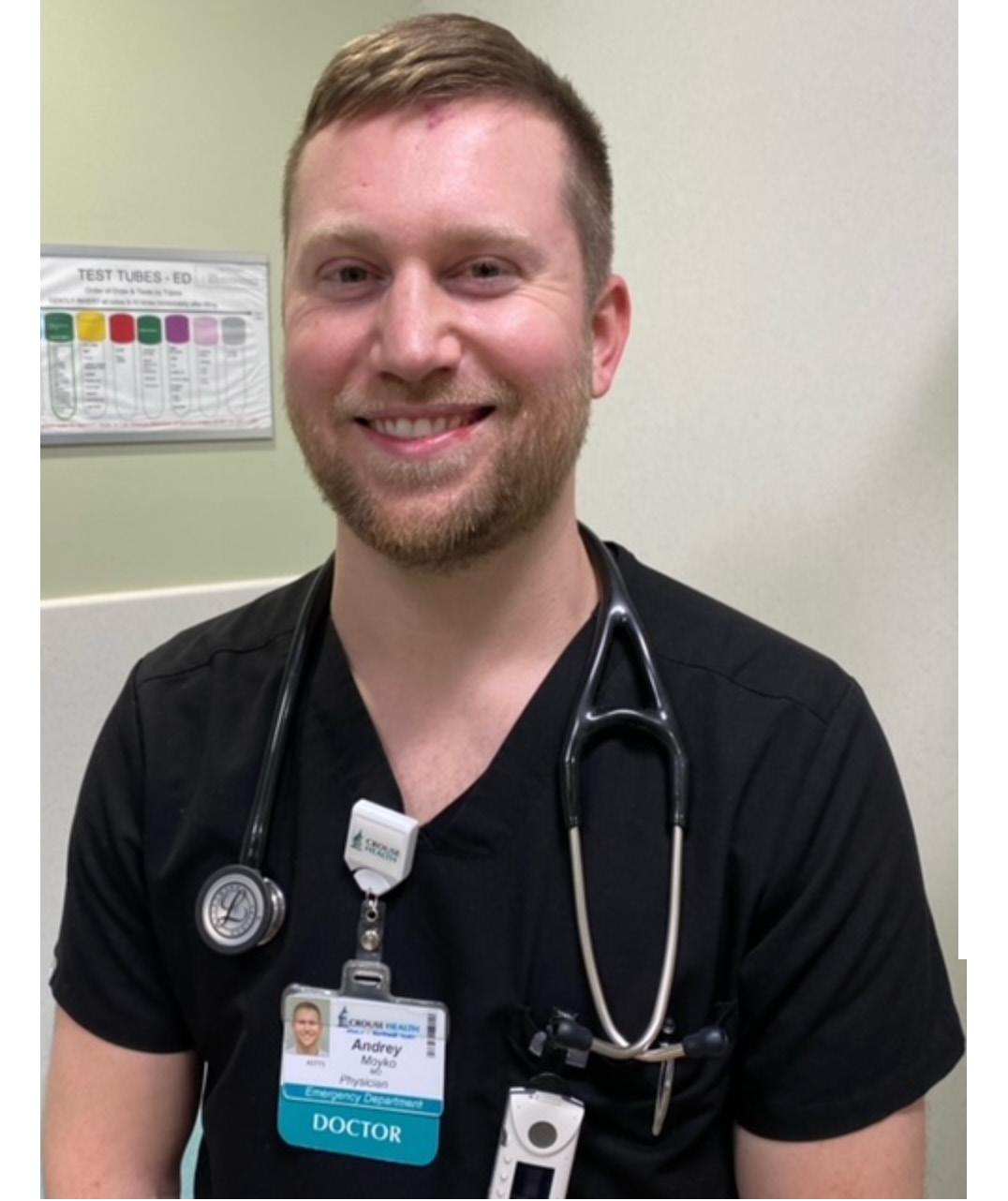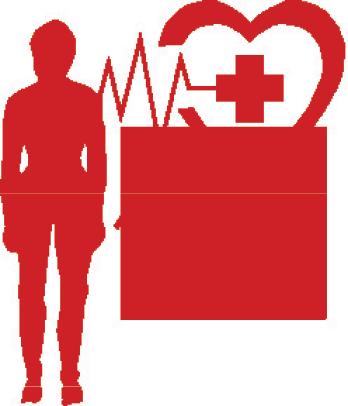
3 minute read
Meet Your Doctor
By Chris Motola
Andrey Moyko, M.D.
Advertisement
Crouse Hospital’s ER doctor: Flu, RSV, COVID-19, “It’s been a little bit crazy
Q: What’s the state of your ER now? Are you stretched thin?
A: It’s funny, during the pandemic there was this lull where we didn’t see that many patients, where it seemed like people were a little nervous to go into the ER. But in the post-pandemic era, we’re having a lot more people coming in. It’s a lot of patients, a lot of sick patients and, as you probably know, there’s a big nursing shortage. So it’s been a bit crazy in most ERs in the country. With ours in particular it’s been very full with patients boarding because the hospital is also full. So it’s been a little bit hectic. This flu–RSV season isn’t helping. So it’s been a little bit crazy recently.
Q: Are patients with respiratory viruses coming in in large numbers?
A: Yeah, a lot of RSV in the last few months. A lot of flu. And we’re still seeing COVID as well. But definitely a big jump in RSV and flu patients compared to last year.
Q: How sick are these patients for the most part?
A: It’s a combination.
whelmed and sometimes they can’t see someone who’s sick, or they don’t have slots for sick visits, so they end up coming in as well. We do see a lot of people who are going to be fine and are safe to go home, but on the other extreme there are a lot of people coming in with a lot of medical issues, and they do seem to be more sick than in years prior.
Q: At what point would you say it’s a good idea to go to the ER if you’re having respiratory symptoms?
A: If you’re starting to have trouble breathing or if you’re having chest pain. Those are usually signs it’s a good time to call your doctor or go to the emergency room if you can’t get hold of your primary care physician. If it’s just some fever, some cough, you’re just achy, maybe wait it out at home with some overthe-counter medication.
Q: How quickly are you able to see patients? Are there times of the week that are slower than others?
A: Usually the morning is better, but with staff shortages and people boarding in the ED, it’s difficult to
Q: As far as the nursing shortage goes, is it difficult in finding or retaining staff? Or is there just so much demand that it exceeds capacity?

A: I don’t know. We did have some staff leave, so it’s probably a combination of both. Not sure if they left for better opportunities elsewhere or if they just burnt out after COVID; but it seems like every hospital is looking for nurses. The administration is trying to keep up with staffing as much as possible.
Q: Is primary care still sending most of their COVID patients to the ER, or are they managing it more inhouse?
A: It seems like they’re managing it more. Now there are different treatments for COVID, so primary care is able to treat patients that aren’t that sick on an outpatient basis. We do still see some referrals, but these are usually patients who have comorbidities or trouble breathing, so they’re being sent in.
Q: Is the staffing issue as serious where physicians are concerned?
A: I think from the physician standpoint our staffing is OK. We’re definitely not as short-staffed as nursing. I think we’re doing OK right now.
Q: Does that mean physicians have to take on some nursing duties?
A: Sometimes we have to help them out, discharge a patient or do something they might normally take care of. We’re trying to be good team players and help out, since they’re just as busy — and sometimes busier — than us.
Q: Do you see the situation improving in the near future?
A: I hear it’s still tough to get nurses, but we’re always hopeful. The administration is hiring. I don’t know if that will translate to relief in the next few months, but hopefully it will be better down the line. Unfortunately it seems like a nationwide thing.
Q: How much has emergency medicine changed since you graduated in 2014?
A: It’s a little hard to say how Syracuse has changed. It’s different by region. I started off in a small community hospital in Boston. I’ve only been here for about two years.
Q: How do you avoid burnout?
A: Our ED is good about our schedules, so we usually get off the days we request. We usually don’t work more than three shifts in a row. I try to take a drive out to see my family in Pennsylvania. My wife, daughter and I try to travel when we can and just get out a bit to relax. And not working six days in a row definitely helps as well.
Lifelines
Name: Andrey Moyko, M.D.
Position: Emergency medicine physician at Crouse Hospital
Hometown: Camillus
Education: SUNY Upstate Medical University
Affiliations: Crouse Hospital
Organizations: American College of Emergency Physicians
Family: Wife, one daughter, expecting another soon
Hobbies: Travel, chess









